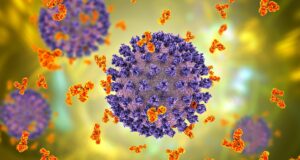
A new study introduces the Proteome-Wide Association Study Hub, an innovative and powerful tool designed to explore gene-disease connections across ninety-nine common diseases. Leveraging machine learning and statistical models, the platform (PWAS Hub) identifies genes linked to specific conditions, with separate analyses for male and female subjects as well as inheritance patterns. This accessible resource is set to advance personalized medicine by providing valuable genetic insights to clinicians, researchers, and the public.
A new study led by Professor Michal Linial from the Department of Biological Chemistry at the Hebrew University of Jerusalem, in collaboration with Guy Kelman from The Jerusalem Center for Personalized Computational Medicine, Roei Zucker from The Rachel and Selim Benin School of Computer Science and Engineering, and Nadav Brandes from the University of California (currently NYU, New York), introduces an innovative tool for exploring gene-disease connections: the PWAS Hub. This resource is based on the novel approach of the proteome-wide association study (PWAS), which complements traditional genetic analysis methods like the genome-wide association study (GWAS) by focusing on the effects of genetic variations on the biochemical function of all protein-coding genes.
The PWAS Hub is designed to be accessible to clinicians, researchers, and the public, offering an interactive platform to explore gene-disease associations and analyze sex-specific genetic effects. With its focus on complex and prevalent conditions, the PWAS Hub aims to become a vital resource for those interested in the genetic foundations of disease, paving the way toward more personalized and precise medical treatments.
Personalized medicine represents a transformative approach to healthcare, focusing on tailoring medical treatment to the unique genetic makeup of each individual. Rather than one-size-fits-all model, personalized medicine considers a person’s genetic, environmental, and lifestyle factors to guide more effective and targeted interventions. This approach is crucial as it allows for more precise diagnosis, prediction of disease risk, and optimization of treatment plans, minimizing adverse effects and improving patients’ outcomes. The PWAS approach, designed to enhance our understanding of how genetic variations influence diseases, begins with machine learning models that assess the impact of genetic changes on protein function. These individual estimated are aggregated into a gene-damaging score, identifying genes that may be associated with specific conditions. Finally, statistical analyses in case-control setting from the large population in the UK Biobank identify significant gene-disease associations, offering a more refined perspective of genetic contributions to various health conditions.
At the core of this study is the PWAS Hub, a platform that enables users to explore gene-disease associations using data from the UK Biobank. Covering ninety-nine common diseases with over ten thousand diagnosed cases each, the PWAS Hub allows for disease-specific genetic exploration with analyses distinguished by sex, for male and female subjects. It also accounts for different inheritance patterns, including dominant and recessive, as well as pleiotropic effects, where single genes impact multiple conditions.
The PWAS Hub’s capabilities are demonstrated through its analysis of asthma, which has identified twenty-seven genes provide insights into the cellular and molecular mechanisms underlying the disease. Additionally, users can also compare data from the PWAS with GWAS data to visualize sex-specific genetic effects and understand the broader genetic impact on common diseases.
Source:
Journal reference:
Kelman, G., et al. (2024). PWAS Hub for exploring gene-based associations of common complex diseases. Genome Research. doi.org/10.1101/gr.278916.123.




